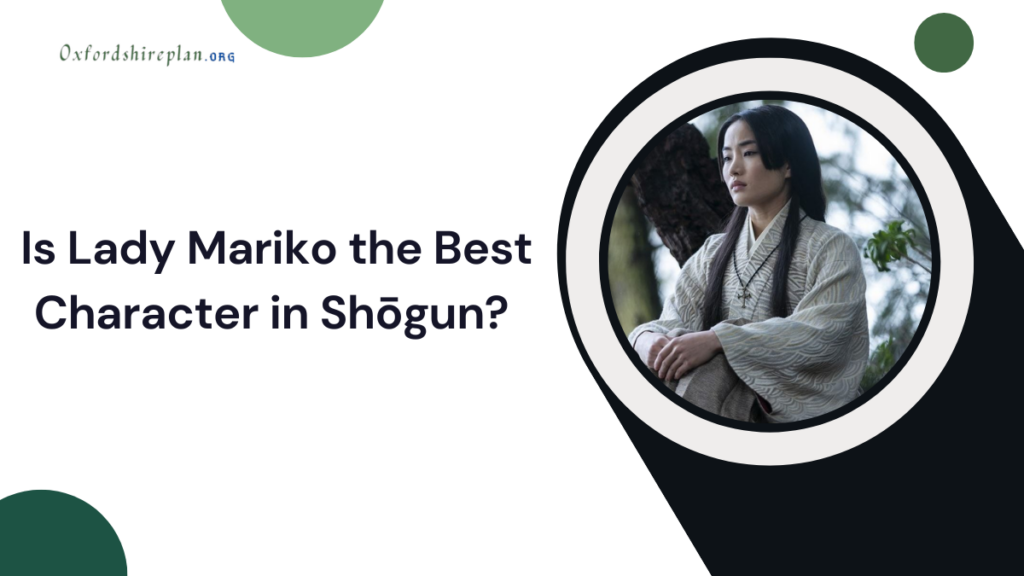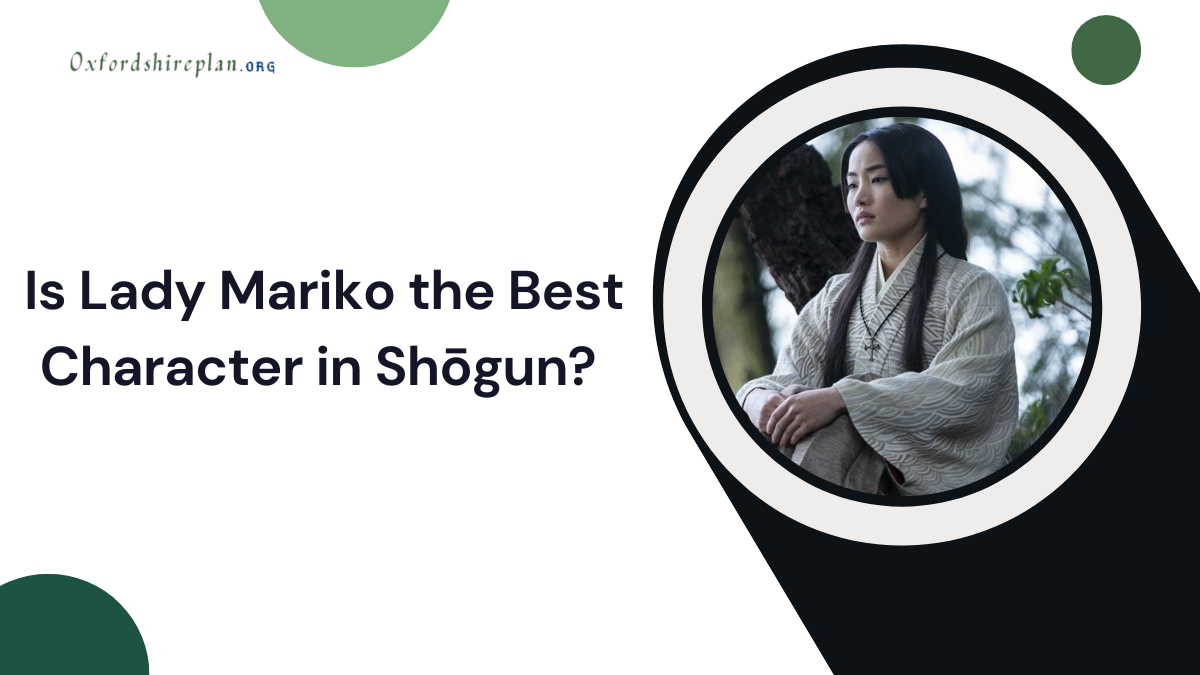Now that FX’s brilliant historical drama Shōgun has wrapped up its final episode, there’s one thing we can all agree on: Lady Mariko is the standout character of the entire show. Played to perfection by Anna Sawai, she captures hearts and commands respect in every scene. In fact, it’s hard to imagine the show working as well without her presence. So, let’s break down exactly why Lady Mariko is the best character in Shōgun—and no, I’m not open to debate on this!

Contents
- The Role of Lady Mariko: More Than Just a Translator
- Key Aspects of Lady Mariko’s Role:
- Mariko’s Complex Backstory: A Woman of Strength and Conviction
- Mariko’s Key Struggles:
- A Love Story That Doesn’t Define Her
- The Impact of Mariko’s Death: A Catalyst for Change
- Mariko’s Lasting Influence:
- Why Lady Mariko Stands Out: More Than Just a “Strong Female Character”
- Final Thoughts: Lady Mariko, The Heart of Shōgun
The Role of Lady Mariko: More Than Just a Translator
In Shōgun, Lady Mariko plays a pivotal role as one of the three main characters, alongside John Blackthorne (Cosmo Jarvis) and Lord Toranaga (Hiroyuki Sanada). She serves as a translator between Blackthorne and Toranaga, but her character is far deeper than that. Mariko acts as the bridge not just in communication, but in influence and understanding, from the moment Blackthorne is presented before the powerful daimyo of Kantō.
However, her role as translator is just a small part of who she truly is. Mariko’s backstory is complex and painful, shaping her into a layered character with immense strength, loyalty, and personal conflict.
Key Aspects of Lady Mariko’s Role:
- Translator between Blackthorne and Toranaga
- Loyal servant to Lord Toranaga
- Daughter of a dishonored father, struggling with familial loyalty
- Torn between duty and personal beliefs
Mariko’s Complex Backstory: A Woman of Strength and Conviction
Lady Mariko’s life before the main action of Shōgun is marked by hardship. The daughter of a dishonored samurai, Mariko has spent her life trying to restore her family’s name. Her loyalty to Lord Toranaga is fierce, yet she feels an almost equal pull towards her late father, longing to join him in death and reclaim her family’s honor. This inner conflict makes Mariko not just a “strong female character,” but one of depth and nuance.
Despite her sense of duty, Mariko is not defined by the men around her. She has her own beliefs, her own struggles, and a quiet strength that guides all her decisions.
Mariko’s Key Struggles:
| Struggle | Description |
|---|---|
| Loyalty to Toranaga | Mariko’s service to her lord dictates her every action. |
| Family Honor | She grapples with the shame of her father’s dishonor. |
| Love for Blackthorne | Her relationship with Blackthorne develops into love but does not define her. |
| Catholic Faith | Her Catholicism adds another layer to her personal conflicts. |
A Love Story That Doesn’t Define Her
Mariko’s relationship with John Blackthorne is a central part of the show, but what’s remarkable is how it never fully defines her character. While their bond eventually evolves into love, Mariko remains her own person throughout. She’s not reduced to a mere love interest—she has her own convictions, beliefs, and desires, all of which shape her journey.
Even in the end, as Blackthorne grieves for her, Mariko’s influence is palpable. Her death resonates not just with him, but with everyone who knew her. She is, quite literally, everywhere in the show’s final moments, even after her passing.
The Impact of Mariko’s Death: A Catalyst for Change
Mariko’s death is a powerful moment in Shōgun, and it happens on her own terms. Rather than waiting for someone else to take her life, she prepares to commit seppuku (ritual suicide) but is interrupted by a shinobi attack. In that brief moment, we see her reclaim her family’s name, switching from “Toda Mariko” to her true name, “Akashi Mariko.”
But her impact doesn’t end with her death. Her actions at Osaka Castle are what ultimately shift the political landscape in favor of Toranaga. Her influence is felt even in her absence, as she convinces her childhood friend Lady Ochiba to side with Toranaga, which paves the way for his rise to power as shōgun.
Mariko’s Lasting Influence:
- Her actions lead to the defeat of Toranaga’s enemies
- She helps sway Lady Ochiba to Toranaga’s side
- Her death solidifies the conditions for Toranaga’s ultimate victory
Why Lady Mariko Stands Out: More Than Just a “Strong Female Character”
What makes Lady Mariko so exceptional is that she is fully realized as her own person. In many shows, female characters are often defined by their relationships with male characters. But Mariko is different. She has her own set of values, her own mission, and her own sense of loyalty. Her character isn’t about changing because of love; it’s about remaining true to herself, even when the world around her is in chaos.
Final Thoughts: Lady Mariko, The Heart of Shōgun
In this Fool Me Once review, we explored how Lady Mariko’s journey through Shōgun is nothing short of extraordinary. Her strength, conviction, and loyalty are the core of the show’s most pivotal moments. Whether she’s navigating political intrigue or battling personal demons, Mariko commands attention and respect.
She’s the character who leaves the deepest impression, long after the final credits roll. In a show filled with complex characters and intricate storylines, Lady Mariko stands tall as the best of them all.
Click here to learn more.

I am a dedicated lifestyle and fashion enthusiast, always looking for the latest trends and timeless styles. With a flair for creativity and a passion for self-expression, I provide fresh insights and tips on elevating everyday living and personal style.
















